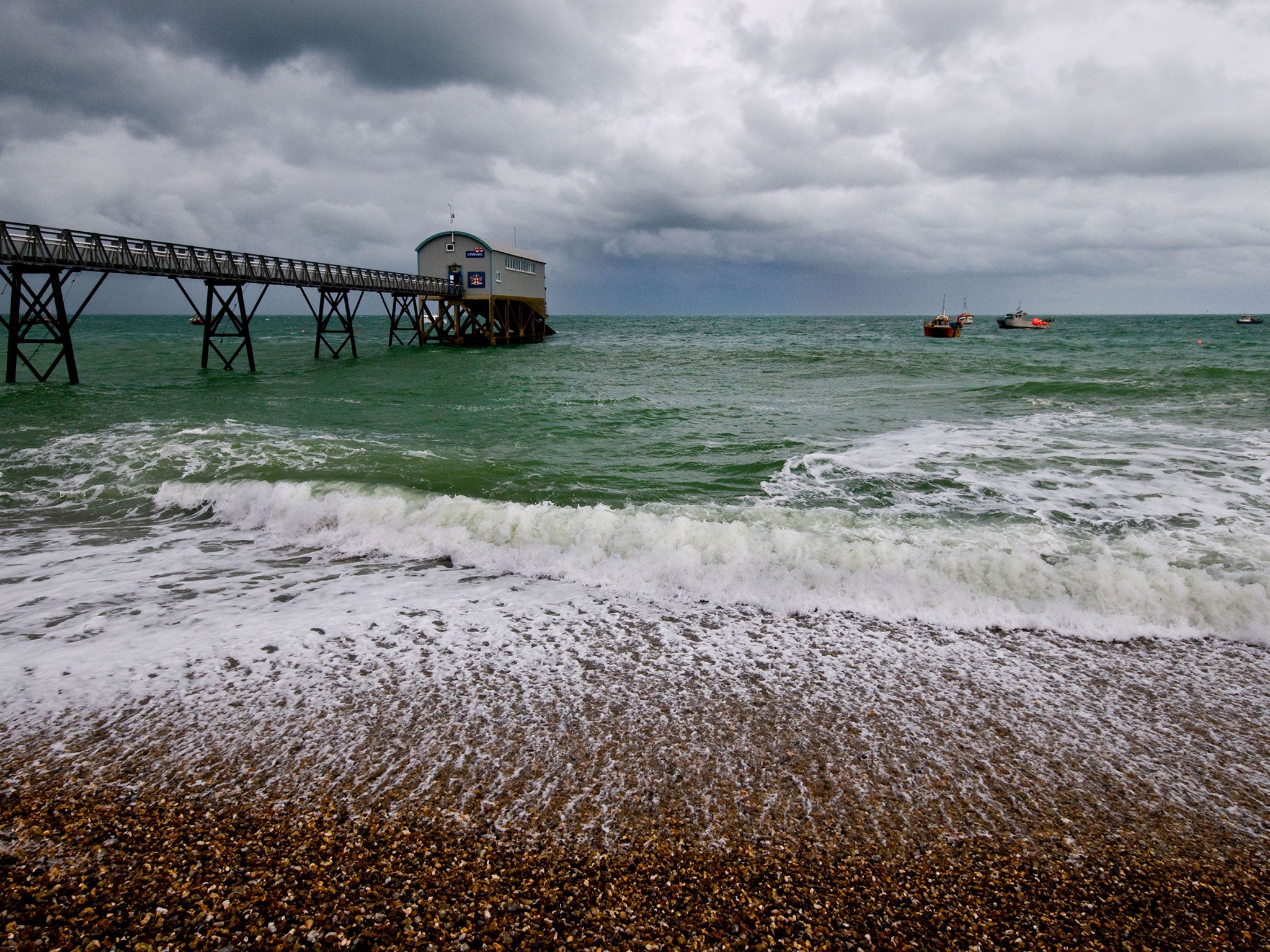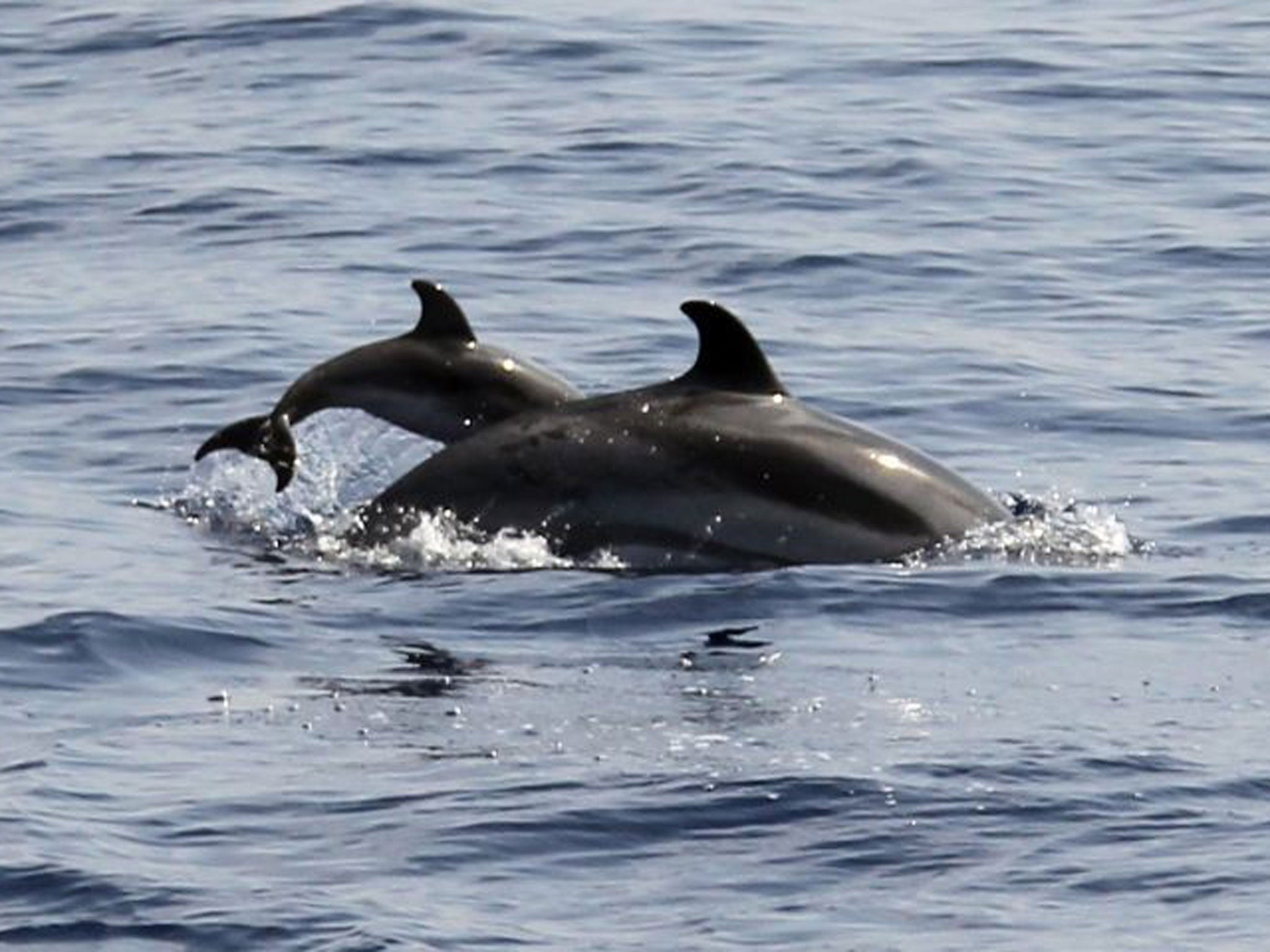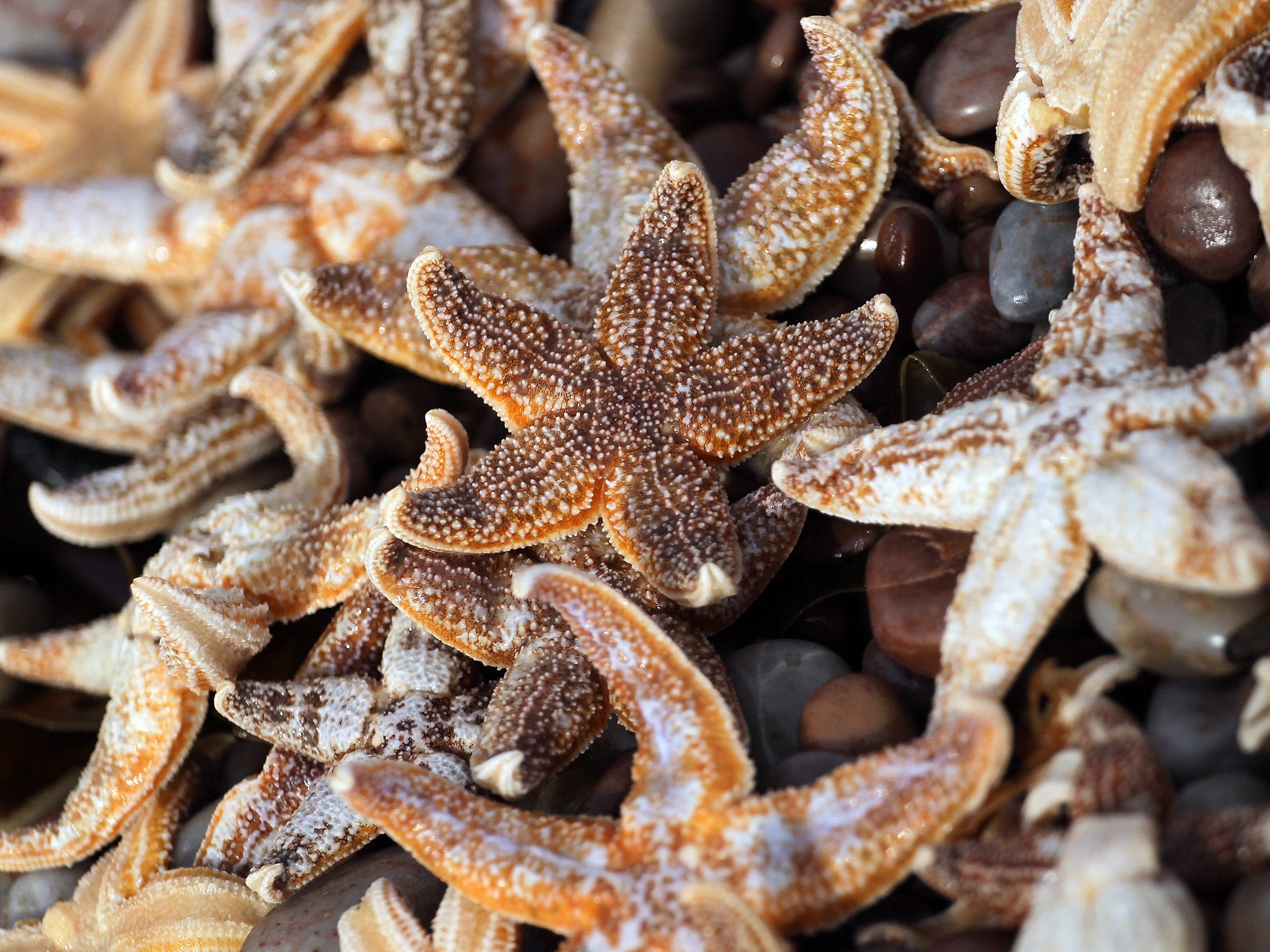Creatures of the deep cry silently for help: Rocky reef habitat in grave danger
Dead man’s fingers and colourless oddities may not be as 'sexy' as dolphins and seals, but their habitat in British waters is at risk

So Utopia really does exist – but it might not be what you are looking for, unless your ideal society is deep under water and includes alien-looking creatures, dead man’s fingers and hungry little baby sharks.
If you take the long and winding road down to the beach on a remote headland in West Sussex and stand with the waves sucking the shingle at your feet, you can look out to where Utopia lies and see … absolutely nothing. The real Utopia is a vulnerable reef five miles out from Selsey Bill, hidden under the silver shimmer on the surface of the sea.
That’s the trouble with precious underwater environments: there’s nothing to see unless you dive. Even then, it’s cold and gloomy. That’s why so many of us know or care so little about what is going on just offshore, as we splash about at the seaside this weekend.
“If you go paddling on the beach, you’re not going to know Utopia exists and how wonderful Utopia is,” says Joan Edwards, Head of Living Seas for the Royal Society of Wildlife Trusts.
“I don’t think the majority of people understand what we are in danger of losing.”
She’s right. None of the day trippers and dog walkers I approach on the windblown beach at Selsey Bill have a clue about the campaign to create a marine conservation zone so close to here, or even what that is. A man called James is skimming stones with his son and says they have stopped off on a long drive from Kent to Cornwall. “Utopia is out there,” I say. They move away fast.
But when they eventually get to St Ives they will almost certainly find some of the million members of the Wildlife Trusts giving out leaflets on the quayside, or leading guided walks among the rock pools.
In Marine Week, which, strangely, lasts a fortnight and which ends on 9 August, the trusts try to convince us to do more to help save the life in our seas. This year that has meant signing up for a campaign in support of those glamorous big beasts of the ocean, dolphins, whales and sharks. The trusts say these superstars of the deep need safe places around the British coast where they can live in peace.

But whales and dolphins have it easy, frankly. They are sexy. People want to save them. What about poor old unloved alcyionium digitatum (dead man’s fingers coral) and other fragile residents of the seabed? This is a critical moment for them, too.
Five years ago, there was great enthusiasm and all-party support for the launch of a plan for a network of protected areas around the coast, allowing underwater life to flourish. But now that plan is floundering like a yacht with a broken mast.
The Marine Act of 2009 was supposed to save our seas, by leading to the creation of what the Conservatives have called a “blue belt” around Great Britain. The trouble is, they are not delivering as much or as fast as they could.
Scientists, marine experts and campaigners named 127 sites they would like to see designated as newly defined marine conservation zones, to sit alongside sites of scientific interest and other areas already protected by British and European law. But the Government – which had promised to be the greenest ever – declared only 27 of these zones in 2013. A further 34 were put out to consultation earlier this year, but 14 fell by the wayside.
Campaigners are bitterly disappointed that only 23 are now left in the running and that it is all happening so slowly. No decision is expected until well after the recess, but if ever there was a time for ministers and civil servants to think about doing the right thing by the sea, it is now, while they’re swimming or surfing with their families on the Cornish Riviera. That won’t be so much fun if the ocean dies.
A third tranche of zones is expected to be announced next year, but even that is highly unlikely to take us anywhere near the 127 that were recommended in the first place.
“The process is slower than I would like. It is taking a long time, but we are moving in the right direction,” says Joan Edwards. “In this age of spending cuts, the fact that we are on this journey is good.”
Why have 14 zones been declined so far? “Unfortunately, the way the Marine Act is written, you have to take socio-economics into account. So if lots of people say, ‘I get a lot of money from this site’, that can prevent it from being designated.”
This has happened in the Irish Sea, where six sites were proposed but not approved because they are important to the fishing of nephrops. That’s scampi.

“It’s a very brightly coloured orange prawn that lives in tunnels in the mud and feeds on other crustaceans. So it eats its friends,” says Edwards, frankly. “It’s very tasty.”
Unfortunately, trawling the seabed for these prawns destroys the mud, plants and soft coral that encourage marine life.
“All the worms and everything living in the mud, which is rich in nutrients, are the food for plaice, whiting, cod and other fish. Sea pens have disappeared from the Irish Sea. Cold water corals have gone because of the trawling. The whiting population has got so low there will be no quota for it this year. We are allowing a fishery to continue that is creating massive problems.”
She hopes the six zones will come back into consideration and be designated next year. As for Utopia, she is an enthusiast.
“It got the name because it is a very special place. It’s a rocky reef that rises from the seabed and is covered in corals and sponges and anemones. It’s absolutely beautiful. If you are diving there and put your hand out, you can’t feel the rock because it is alive with very small animals, feeding on the plankton coming past.”
There are a couple of problems with that description. Firstly, Utopia actually got its name from being a place where pups are born to the tope, a long, narrow shark that is widespread throughout the world but still a vulnerable species. It is unfortunate enough to be the main ingredient in shark fin soup.
And with the best will in the world, Utopia cannot be described as beautiful. Video taken by divers shows strange sponges, washed-out white anemones, sprawling starfish and bizarre creatures that only a mother would love. The waters are dark and cloudy. One bit of sea life looks like a broccoli tree that has gone off, another like a discarded slice of lemon. The South Pacific it ain’t.

“Utopia doesn’t look like a coral reef, but to me it is just as exciting,” says Edwards. “People are finding new species in English waters now. It’s about getting people to realise what is on our doorstep and that it is worth protecting.”
Lovely or not, places like this are vital to the health of our seas. But how can they be protected? There are no signs and fences, obviously, so what is the point of making a place like Utopia a marine conservation zone? “It will offer protection from the most damaging activities, such as scallop dredging or bottom trawling. By stopping those fishing methods you allow recovery and start to get really diverse communities.”
The environmentalist George Monbiot observes that nobody is enforcing this. “The small number which have been approved are pretty well useless,” he says. “They are little more than paper parks, lines on the map which make almost no difference to the life of the sea.”
The marine scientist Professor Callum Roberts says the network is “worse than useless”. He told the Zoological Society last year: “Even in the few small places where protection from certain fishing methods is being (reluctantly) entertained, the measures will be entirely voluntary.”
So what do the fishers think? Tony Delahunty, chairman of the National Federation of Fishermen’s Organisations, happens to fish for lobster with his son on a boat out of Selsey. He is at sea and can’t talk now, but gets the NFFO to email a statement saying that while the zones are useful in protecting fragile habitats, the fishing community is worried about the way they will work.
“They need to be selected in places and apply management that does not undermine livelihoods that may have existed in those localities for generations. That takes time, and it requires evidence and a degree of patience.” There is still “a great deal of uncertainty” over how they will be managed, “which understandably leaves many fishing communities concerned their livelihoods may hang in the balance”.
Back at the Wildlife Trusts, Joan Edwards is on a government panel looking into how to manage the zones, along with people from the fishing, leisure, oil and gas industries and those who dredge for rocks and minerals. She says the good thing about the slow pace of change is that solutions are being found and people are finding ways to work together.
But more support is needed to make sure the Government keeps its promises. “You want a nice healthy sea that looks nice, smells nice and is good to swim in. Healthy seas are also good for the fishing industry. We need everybody to get behind our campaigns.
“It’s no good just us calling for these things, we need everybody to say they want their environment looked after in the right way.”
They did, five years ago. Now it’s a question of whether ministers will designate and enforce the 127 zones that scientists and campaigners judged to be ideal.
As the wind blows up on Selsey Bill and the rain clouds roll in, it is time to do more than simply acknowledge that Utopia exists.
Join our commenting forum
Join thought-provoking conversations, follow other Independent readers and see their replies
Comments
Bookmark popover
Removed from bookmarks